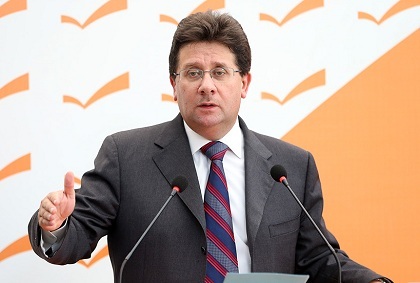BEIRUT, Jan 24 – Lebanon’s parliament will vote next week on a 2020 budget that projects a deficit of 7% of GDP, the head of parliament’s finance and budget commission said on Friday — far larger than the 0.6% originally planned, as multiple crises batter the country’s finances.

Lebanon is suffering from a long-brewing economic crisis, which erupted last year in protests against the ruling elite. A hard-currency crunch led banks to impose informal capital controls and the currency to slump.
Strained by decades of corruption and waste, Lebanon’s state finances are one of the causes of the crisis. The country has one of the world’s heaviest public debt burdens.
Ibrahim Kanaan, a senior MP, said the 2020 budget marked “the start of the rescue plan”. Parliament is due to convene on Monday to debate the law, which was first drafted by the Saad al-Hariri-led government that quit in October.
A new government formed this week with backing from Hezbollah and Kanaan’s Free Patriotic Movement is expected to enact rapid reforms, including in the power sector, which sucks $2 billion a year from state coffers, he said.
“The government now is more homogenous, you don’t have these sort of struggles between political blocs and parties inside the government,” he said.
The 2020 budget originally aimed to slice some 7 percentage points from 2019’s targeted deficit, largely through a waiver on interest on government debt held by the central bank. The bank remains committed to waiving the interest, Kanaan said.
But uncertainty makes it difficult to project revenues. “Revenues were reduced very substantially,” Kanaan said. “Now we are coming back from this story, it needs time to see and assess clearly what kind of figure we can aim for.”
The budget law includes raising a state guarantee on bank deposits to 75 million Lebanese pounds – around $50,000 at the official exchange rate – from 5 million pounds.
“Some 86% of the depositors in Lebanon would benefit from this rise,” Kanaan said.
It also extends a six-month grace period for debtors struggling to repay subsidised loans.
The budget law will also require state-owned bodies, including the Port of Beirut and telecom companies, to transfer revenues directly to the treasury, a move Kanaan said would help bring down their operating costs.
(Reuters)

Leave a Reply
You must be logged in to post a comment.